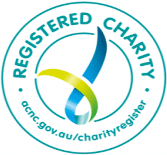What can I do?
If you have experienced or witnessed racial discrimination from the police, there are a variety of ways to report it.
Make a complaint to the police station
If one or more police officers have acted in a discriminatory way against you or someone else, you can make a complaint directly to the police station where they work. In many cases, you will need to try and resolve the matter with the police station before taking the case further, for example, to a supervisory body.
Make a complaint to a supervisory body
While there is no public body specifically responsible for overseeing incidents of racial discrimination by the police, police activities will be supervised by supervisory bodies that might be able to receive complaints of racial discrimination.
ACT:
ACT Policing services are provided by members of the Australian Federal Police (AFP). Complaints against members of the AFP can be made to the AFP itself or to the AFP Professional Standards, if the complaint relates to the AFP Code of Conduct. Should the AFP not be able to resolve the issue, you can take the matter to the Commonwealth Ombudsman, which is also the Law Enforcement Ombudsman.
NSW:
In NSW, you can complain about police officers to the NSW Police Force (NSWPF). If you wish to complain about a serious misconduct by a member of the police force, you can also take your complaint to the Law Enforcement Conduct Commission (LECC).
NT:
In the NT, you can make a complaint about a police officer to the Northern Territory Police or to the Northern Territory Ombudsman. It is important to note, however, that a complaint should be made as soon as possible, as the Police Administration Act determines that prosecution against a police officer must commence within 2 months of the act or omission complained of and disciplinary actions against police officers must commence within 6 months of the act or omission.
QLD:
In Queensland, you can make a complaint to the Queensland Police or, if you are reporting a corrupt conduct or a police misconduct, you can make a complaint to the Crime and Corruption Commission.
SA:
In South Australia, you can make a complaint against a police officer to the Office for Public Integrity.
VIC:
In Victoria, you can make a complaint to the Police Conduct Unit or, if you wish to report a police misconduct, you can make a complaint to the independent broad-based anti-corruption commission.
TAS:
In Tasmania, you can make a complaint to the Tasmania Police and, if you are not satisfied with how they resolve the matter, you can take your case to the Tasmania Ombudsman.
WA:
You can make a complaint about WA Police Personnel to the WA Police Force. If you wish to make a complaint regarding a matter of administration, you can submit it to the Ombudsman Western Australia; or, in certain cases, you will be able to report the incident to the Corruption and Crime Commission.
Take your case to a federal or state court
Any matter related to racism can be reported to the Australian Human Rights Commission (AHRC) or other state anti-discrimination bodies. You can click here for more information about how to make a complaint to the AHCR or to a state body.
After you have done that, in some cases it might be possible for you to take your case to court. As court procedures can be complicated and vary greatly from state to state, we recommend that if you wish to seek redress through the court system, you first seek advice from your nearest Community Legal Centre and/or Legal Aid to get further assistance on how and to whom you should make a complaint.
Before making the decision to start a court procedure, it is important to keep in mind that these procedures can be quite costly and lengthy. If this does not seem to be the best option for you, there are alternative dispute resolution methods available at anytime.
Go to the police
We understand that reporting an act committed by the force itself to the police might not be the best solution in this case and you can always take any of the other actions mentioned above. However, it is important to know that in some cases a racially discriminatory act will constitute a crime and can be reported to the police. Which acts constitute a crime will vary depending on the state or territory you are in. If you wish to go to the police, we advise that you consult with a lawyer or a trusted police station first.
Make a report on Call it out: A First Nations Racism Register
Call it Out: A First Nations Racism Register is an online reporting platform for people who experience or witness any form of personal or structural racism towards Aboriginal and/or Torres Strait Islander Peoples.
The purpose of this initiative is to hear directly from the community to better understand the nature and extent of racism of all forms. Reports are held confidentially and inform an annual report by Jumbunna Research.
Make a complaint to the Islamophobia Register
In addition to the above legal and institutional reporting options, if the incident was Islamophobic you might also consider sending a complaint to the Islamophobia Register. Making a report to the Islamophobia Register ensures that incidents of Islamophobia and Anti-Muslim sentiments are securely recorded and analysed to build a body of knowledge about Islamophobia in Australia.
Research
Police profiling in Australia is a topic that is constantly discussed in the media and by experts. The Huffington Post has analysed the issue in its blog, while the Guardian and The Conversation have looked into racial profiling in Victoria and ABC News has reported on the fear of racial profiling of Indigenous peoples in the ACT. Furthermore, in April 2018, SBS revealed that in NSW only 5.6% of children are Aboriginal, and yet half of all children on the NSW Police Suspect Target Management Program (STMP) are Aboriginal. SBS also mentioned that an Indigenous young person is almost 19 times more likely to be singled out by the STMP; while an Aboriginal child under the age of 15 is almost 31 times more likely.
The Special Rapporteur on the rights of Indigenous peoples (SRIPeoples) has also addressed the issue in the report published after her visit to Australia between 20 March and 3 April 2017. According to the Special Rapporteur:
“The administration of justice and detention practices were raised as key concerns during the country visit. The extraordinarily high rate of incarceration of Aboriginal and Torres Strait Islanders, including women and children, is a major human rights concern. While Aboriginal and Torres Strait Islanders make up only 3 per cent of the total population, they constitute 27 per cent of the national prison population. More than half of the children in detention are Aboriginal and Torres Strait Islanders. In some detention facilities, such as in the Northern Territory and in the Cleveland Youth Detention Centre in Queensland, indigenous children constitute an astonishing 90 per cent of the detainees, which prima facie raises concerns over racial discrimination in the administration of justice. (…) Current laws and policies continue to contribute to the swift escalation in the incarceration rates of Aboriginal and Torres Strait Islanders. Though not explicitly targeted at those populations, their disproportionate impact is clear.” (emphasis added)
This topic had previously been raised by the former United Nations Special Rapporteur on contemporary forms of racism, racial discrimination, xenophobia and related intolerance (SR Racism) after his visit to Australia, which took place from 28 November to 5 December 2016. His report mentions that “The Special Rapporteur was made aware of several incidents of police profiling of indigenous peoples and discrimination in the private sector, especially in the provision of and access to goods and services.“
The law
While the Racial Discrimination Act 1975 (RDA) does not explicitly address police services, the police force does have obligations under the Act. The RDA makes it unlawful for a person who provides services to the public to refuse to provide these services, or to provide them on less favourable conditions, on discriminatory grounds. Furthermore, police forces in Australia have codes of ethics or standards of conduct they must follow while performing their duties. These codes or standards will vary between states or territories, but will usually prohibit discrimination. The NSW Police Standards of Professional Conduct, for example, says it is unlawful to harass, vilify, victimise or discriminate against any person based on race, colour, ethnic or ethno religious background, descent or nationality.


